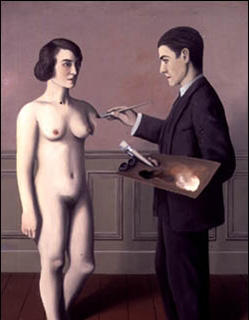Research Project C9. Aesthetic 'Liveliness': Presentification – Present Tense – Presentness
Head
Prof. Dr. Winfried Menninghaus
Research Associates
Dr. Armen Avanessian / Dr. Jan Völker
Student Assistants
Objective
In the previous funding period, our project was devoted to the significance of the terms ‘life’ and ‘liveliness’ in the context of aesthetic theory. The focus was primarily on Kant and poetological issues of the nineteenth and twentieth centuries. In the current project phase, we address the modern transformation of one particular process of lively representation: ‘presentification’ (Vergegenwärtigung). The figure of ‘making present’ dating back to Ancient rhetoric undergoes complex turns in the ways 20th century philosophy, literature, and literary theory deal with presentness and the present tense. We look into what the grammatical present tense and aesthetic presentness does to, and means to, aesthetic experience.The project combines two foci: One centers on Derrida’s critique of the concept of presentification (Vergegenwärtigung) in the works of Husserl, and the other on the present-tense-novel of the 20th century (since Beckett, Weiss, Hildesheimer). In the latter, strategies of enlivening (Verlebendigung) are transformed by rethinking the aesthetic presence via the grammatical form, the present tense. In Derrida, it is precisely the critique of the metaphysics of presence and of Husserl’s ‚lively experience’ that leads to an understanding of literature which requires a new approach to the notion of presentification (Vergenwärtigung).
Sub-project 1: The presence of literature in deconstruction
(Dr. Jan Völker, EA; Prof. Dr. Winfried Menninghaus, GA)
Reexamining Derrida’s critique of the notion of ‚Vergegenwärtigung’, the project pursues two goals: on the one hand, it traces an aesthetic gesture present in deconstruction itself ,and on the other hand it shows how deconstruction entails aspect of “literarure” that undo the gesture of presentification. The main thesis of the project is that the notion of a literary experience leads to a strange presence of literature in philosophy: it is an experience in and of literature that motivates deconstructive philosophy, and at the same time works against the postulated indecidability of literature and philosophy (a literally experience). The project will analyse Derrida’s early critique of the ‘presence of experience’ in Husserl and make it bear on the question of the aesthetic judgment. Furthermore, the consequences of this critique for Derrida’s readings of literature will be examined, with the aim of showing that deconstruction approaches literature in ways that do imply a distinction between literature and philosophy, and hence rely on a distinction that exceeds deconstruction itself.
Sub-project 2: The revision of presentification in present-tense fiction
(Dr. Armen Avanessian, EA; Prof. Dr. Winfried Menninghaus, GA)
Sub-project 2 is devoted to a critical study of features of aesthetic liveliness in twentieth-century novels written in the present tense. The underlying hypothesis is that the topos of ‘presentification’ is initially problematized by the present-tense novels of the mid-twentieth century. Subsequently the present tense assumes new significance on both the temporal and the historical level. With Pynchon, Simon, Beyer, etc. present-tense novels managed to bring historically past times (back) to life. The project scrutinizes the positions in literary theory in which the topos ‘presentification’ played a significant part. Furthermore, the project will question the relationship between these theoretical re-actualizations of the topic and the literary present-tense prose of the same period. Exemplary readings will serve as the basis for systematic analysis and for evaluating existing observations and hypotheses. A monograph on aspects of tense theory, co-authored by Anke Hennig (TP A4) is currently in preparation. Further cooperative work with the Center for Narrative Research (ZEF) is also underway.
